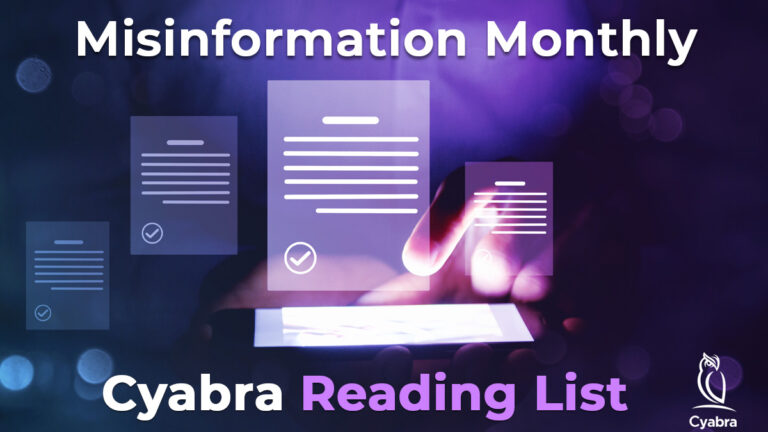The 23rd game in a long, popular series was surprisingly met with huge negative sentiment online. But was it really such a surprise? Not to those familiar with the game and the company behind it.
The popular FIFA video game, created by EA Sports, is licensed by the world governing body of association football, also called FIFA. Available in 51 countries and translated to 18 languages, the FIFA series has sold over 325 million copies worldwide.
But starting from 2023, EA and FIFA’s partnership of 30 years will be ending. The FIFA game will henceforth be known as EA Sports FC, and FIFA itself will partner with another developer to produce a new game under the FIFA name.
The Most Loved and Hated Game
Remarketing a 30-year-old brand is not an easy task. After a long period in which EA Sports enjoyed the name FIFA and the earnings made off the successful partnership with the football association, the brand will now have to carve its own way with a less catchy name, which most fans of the video game might not even be aware of. Can the new brand maintain the success of this extremely popular game, or will this be another cautionary tale of a partnership in which the sum was bigger than its part, and its end marked the downfall of one or two sides?
While losing their gold laying goose is a very real danger for the EA, this might also be a golden opportunity to remarket their brand, as the last few years have seen a steady rise in complaints and general dissatisfaction about FIFA. On one hand, the brand is always evolving, staying relevant and fun – for example, the upcoming FIFA game will be adding AFC Richmond from the popular show “Ted Lasso” as a team competing in the new game. However, FIFA also received quite a lot of criticism for unwanted gameplay changes, and just recently for mocking players.
Being one of the most popular games in the world, the FIFA game might not feel the effect of consumer hate just yet, but with complaints piling up, the loss of a 30-year-old brand name, and alternative games popping all around, the red card might be nearer than it appears.
Social Crisis in the Making
The hashtag #boycottfifa23 has been trending for a few months now. The first mention of the hashtag, on July 22 (below), got only a few engagements on Twitter, but Cyabra’s analysis discovered it was not as low impact as it had seemed, and actually spread to over 16,000 profiles.
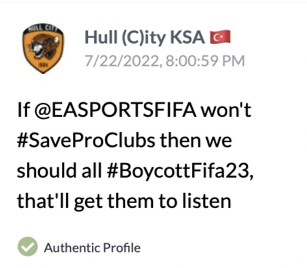
The hashtag quickly gained popularity online, crossing into other platforms such as Facebook and TikTok.
As mentioned, a lot of the rage was directed at EA Sports’ decision to cancel the cross-play option, gameplay that allowed players using Xbox, PlayStation, and other consoles to play the game together. Many players stated this would bring an end to the FIFA Pro Clubs and limit their game, as from now on they will only be able to compete with players using the same console as them. Many of the profiles started using the hashtag #SaveProClubs.

While this controversial decision might seem like the reason for this media crisis, Cyabra’s experts observed social conversations in the past month, and found that the cross-play was only the tip of the iceberg in what looks like years of growing disappointment and resentment.
Pay-to-Win and the Morality of the Gaming Industry
The gaming industry has many profit models, but the major two are Pay to Play and Pay to Win. The first one is based on a single transaction that occurs upon buying the game, while the second one usually involves a free-to-download and play game, which later coaxes the players to make in-game purchases simply to make progress in the game, or to be able to win against other players. Pay-to-Win games, while being very profitable, have been regularly criticized in the last few years for their manipulations, and studies have shown that they can be quite addictive, especially for children.
While FIFA started as a console-based, strictly Pay to Play game, and still officially belongs in that category, many of its critics argue that it has gradually become Pay to Win, tempting players to waste large amounts of money on FUT (FIFA Ultimate Team) packs.

Another common resentment revolves around FIFA’s giveaways on their social media, which players claim to be fake, as many of the gifted codes simply didn’t work.

When Authentic Communities are Authentically Angry
Inauthentic profiles such as bots regularly take part in online debates, especially negative ones. This time, the number of inauthentic profiles Cyabra found was relatively low – 141, which made for 8.1% of the overall profiles participating in the conversations.
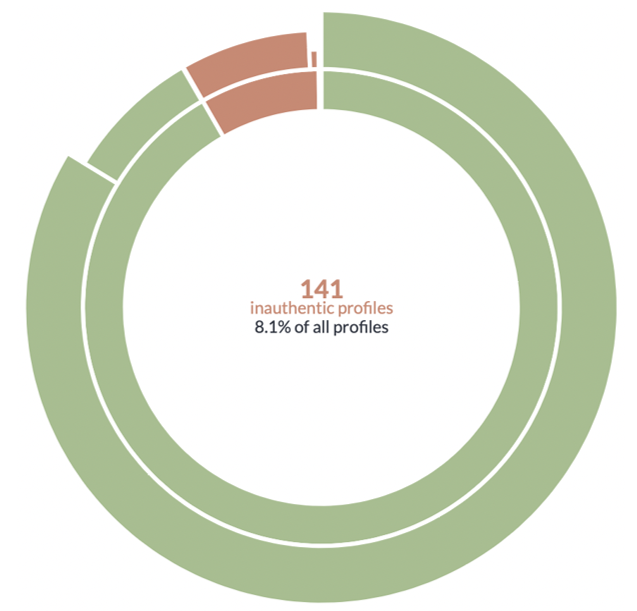
Another sign of authentic debates about EA and FIFA was the array of disappointment with different aspects of the brand, such as unresponsive customer service, slow servers, unrealistic team ratings, and expensive prices.
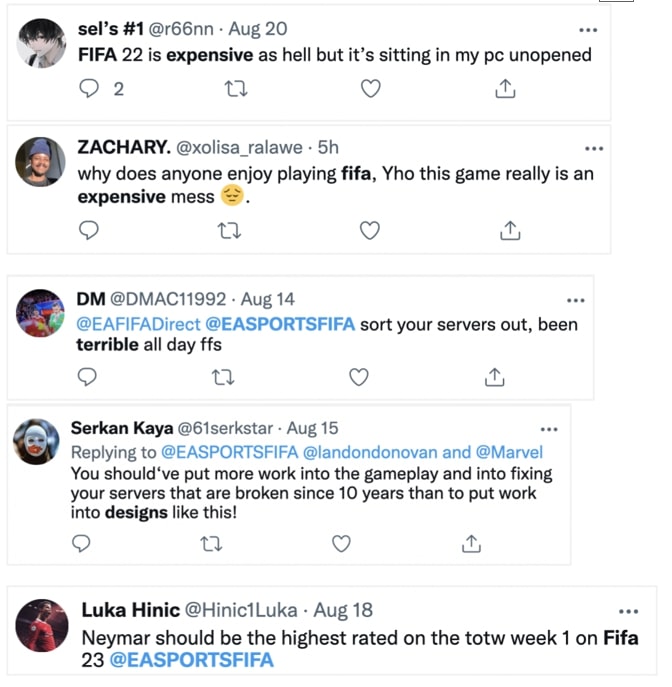
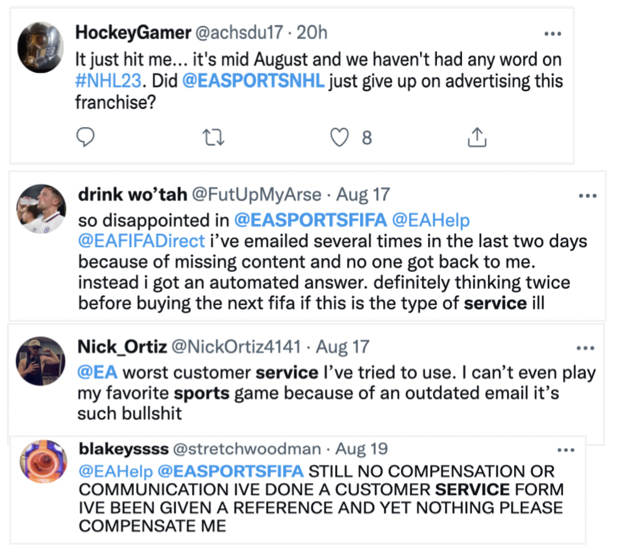
Cyabra experts studied EA’s competitors Activision Blizzard and Ubisoft and found negative sentiment towards those brands was lower, and focused on one or two major issues (such as product or service) instead of showing general disappointment with everything regarding the brand. Negative content involving EA Sports spread from Europe (mostly UK and Germany) and from the U.S, and it is still spreading. With just a few days left to the release of the FIFA23, negative sentiment reached a new record of -335%. Could EA still score a goal and win back public affection, or is the golden age of FIFA simply over? Cyabra’s football fans promise to keep track and update. The rest of them will patiently wait for the real-life FIFA games, set to take place this coming November. Stay tuned!
